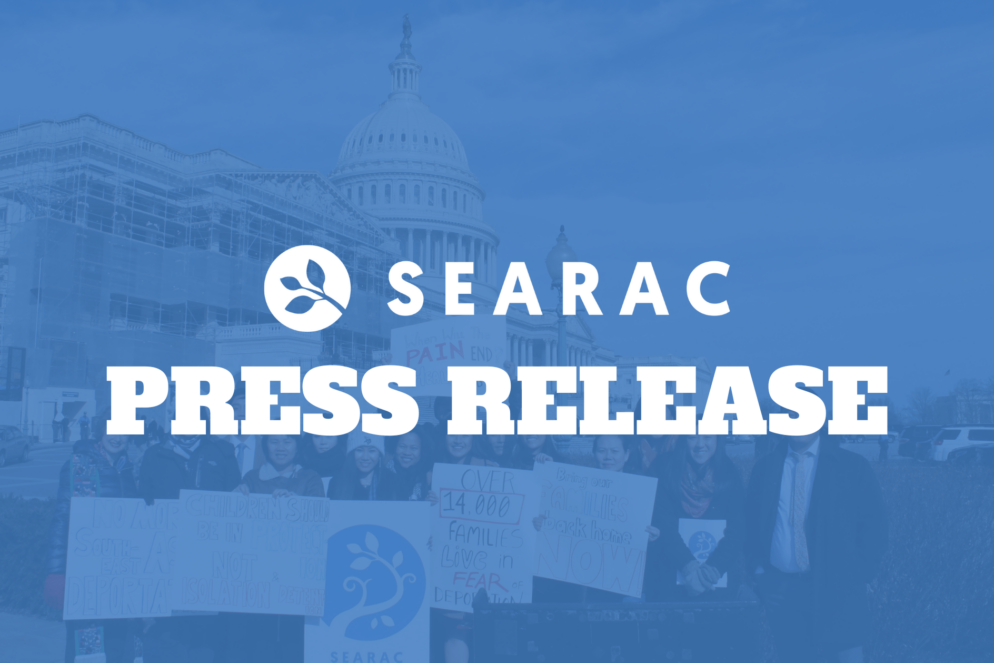WASHINGTON, DC – Last night, President Biden presented his State of the Union address, through which he shared his vision to rebuild and restore the country. Katrina Dizon Mariategue, Acting Executive Director of SEARAC, shares the following response:
“Halfway into President Biden’s first term, we celebrate the historic progress that our Asian American, Native Hawaiian, and Pacific Islander (AANHPI) communities have experienced and the significant strides that this administration has taken to get this done. As an organization dedicated to ensuring the success of our Southeast Asian American communities, we appreciate the President’s ongoing actions to combat anti-Asian hate and cultivate our communities’ access to critical opportunities. We also thank the President for his efforts to bring visibility to AANHPIs, as he did by honoring Brandon Tsay, a survivor of last month’s gun violence in California, as his guest.
Additionally, we are encouraged by President Biden’s commitment to holistic health, from providing mental health services to students, to supporting older adults and those who care for them. We appreciate the President’s commitment to improve education, which includes accessible pre-school and multiple pathways to a postsecondary education. Southeast Asian Americans continue to experience intergenerational poverty and trauma, so we must ensure that the supports meant to help individuals, families, and communities succeed are accessible for all.
However, we are disappointed by the President’s silence on pressing immigration concerns. The President’s few cursory remarks on immigration emphasized border security, rather than extending the opportunity and hope embedded in his vision to the millions of immigrants and refugees harmed by unjust immigration laws. We need to boldly reimagine who gets included in the ‘backbone of America’ and restore humanity back into our immigration system.
SEARAC remains committed to working with the Biden-Harris Administration to ensure that Southeast Asian American communities – and all communities – can thrive.”

